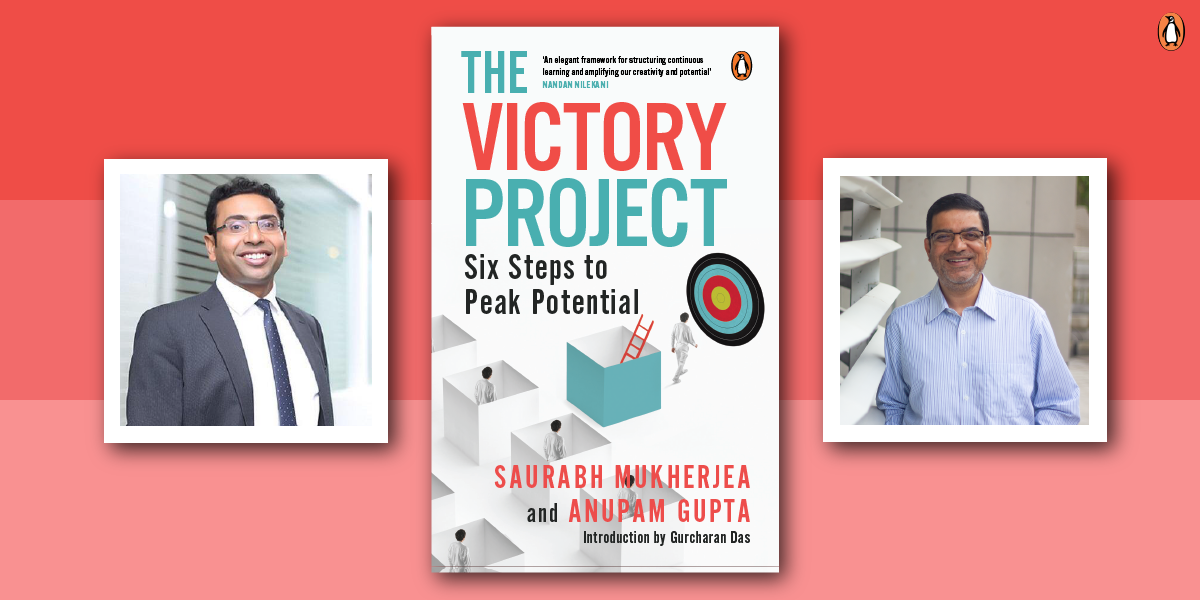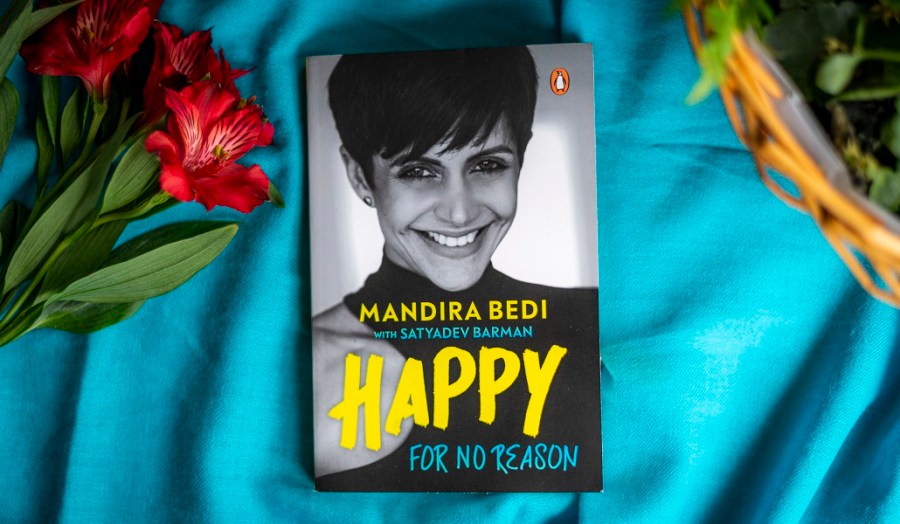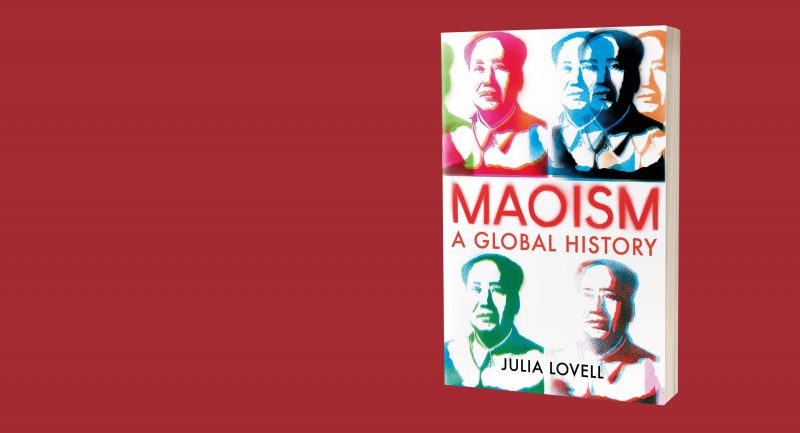

The Victory Project
Saurabh Mukherjea, Anupam Gupta
The Victory Project is the ultimate guide to surviving and thriving in the professional and social domains, which are increasingly becoming tough, competitive, often cutthroat and deeply political. It delves into a treasure trove of material from global gurus as well as from highly successful Indian and American professionals, and it draws on the authors’ own careers to show how readers can apply these principles to the fields of business and investment, even to life itself.
Here’s an insightful Q/A session with Saurabh Mukherjea and Anupam Gupta, the authors of The Victory Project. Saurabh Mukherjea is the founder of Marcellus Investment Managers and a bestselling author and Anupam Gupta is a chartered accountant, investment research consultant and podcast host.
What has been your greatest learning while writing The Victory Project?
Saurabh: Every single expert we interviewed for the book spent 1-3 hours with us. During that time period, these experts gave us their undivided attention. For example, we have spoken to Mark Mobius several times over the last couple of years. In some instances our discussions have extended beyond 90 minutes. Not once has Dr Mobius interrupted the meetings to take phone calls or read his Whatsapp messages. In fact, the longer the meeting goes on, the greater the powers of concentration of this 83 year old investment legend who did much to build the asset class that is today called Emerging Market Equities.
When we met Prof Sanjay Bakshi, the managing partner at Value Quest Capital, in Delhi at the Lodhi Hotel to interview him for the book, the meeting lasted for over two hours. Prof Bakshi is a big believer in the idea of intense focus and cutting off all distractions to spend quality time on a single idea. He showed his phone, which had a blank home screen and no notifications. Throughout our meeting, his phone did not beep or light up or ring even once. In those two hours he gave us some of the deepest insights into fierce focus that I have received in my career. Chapter 3 of The Victory Project contains these insights.
Similarly when we interviewed Sanjiv Bikhchandani of Infoedge – arguably amongst the most successful VC investors in contemporary India – for The Victory Project, the meeting lasted for over 90 minutes. During that time, he did not once look at his mobile phone or entertain other visitors.
Do you think there’s an increased acknowledgement of the negative impact of highly stressful professional environments in the present times? What do you think has prompted this awareness?
Saurabh: As we discuss in the Prologue to The Victory Project, divorce and depression rates in our large cities have risen sharply over the past decade. Most Indian professionals can now clearly see that their peers and their friends are at the receiving end of these stressors. Corporate captains can also see that this has an adverse impact on employee productivity. The question is what should be done about it. The superficial corporate response is to organise a helpline for employees wherein they can speak to a counsellor. As our interview with Dr Sharmila Banwat, a psychologist in Mumbai indicates, what is required is a much deeper rethink by employees and employers around how hard working, ambitious professionals can hit peak potential without burning themselves out. This issue is the key focus in The Victory Project and hence the subtitle of the book is ‘Six Steps to Peak Potential’.
How do you relax and recharge after a hectic work day?
Saurabh: My unwind routine is a hot shower followed by dinner with the family which in turn is followed by telling the kids their bedtime story. I usually doze off during the narration of the bedtime story!
How successful have you been in applying the principle of ‘decluttering’ to your own life?
Saurabh: I have had modest success in this regard. I don’t have social media apps on my phone. I make it difficult for people to reach me and for me to reach other people. Other than books, I typically don’t buy anything else for myself. I avoid parties and networking events. It helps that I enjoy sitting by myself and reading for hours on end. The only challenge is that I enjoy writing so much that every other year I end up committing to write another book for Penguin!
Questions we asked Anupam
What changes do you think organisations can introduce at their level to reduce stress at the workplace?
Anupam: The Simplicity Paradigm in our book can work as a guide for organizations as well. If organizations can, for example, find ways to a) help employees towards their specialization b) put them in teams that collaborate cohesively c) encourage creativity among employees – all of this can go a long way in employees and teams working towards common goals and, as a result, reduce stress. Spirituality also plays a vital part here and meditation, as we’ve detailed in our book, can also help in reducing stress and improving productivity.
What role do you think support systems like families, friends, partners, play in ensuring an individual’s professional success?
Anupam: Support systems play an important role within the overall Simplicity Paradigm and hence for an individual’s success. In our book, we’ve written about mentorship as part of honing your skills. Similarly, colleagues and bosses play an important role in collaboration. Friends with whom you can talk on a diverse set of topics can inspire creativity.
What has been your biggest takeaway from writing The Victory Project?
Anupam: Meeting the diverse set of experts has been an inspiration on the power of the Simplicity Paradigm construct. While the books we read for preparing The Victory Project gave us great background material, watching these experts embody the steps of the Simplicity Paradigm and achieve outsized success was truly the biggest takeaway.
Please recommend some of your favourite books to us.
Anupam: I’m a big fan of corporate history so all the books on great companies (mentioned in The Victory Project) are my favourites:
Steve Jobs by Walter Isaacson
The Everything Store: Jeff Bezos and the age of Amazon by Brad Stone
Ambani & Sons by Hamish McDonald
Disrupt and Conquer by T.T. Jagannathan and Sandhya Mendonca
Bhujia Barons by Pavitra Kumar
**









